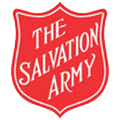| Drugs of Abuse | |
 |
The Information on Common Drugs of Abuse section of the National Institutes of Health, National Institute of Drug Abuse's site is not a complete listing of all drugs of abuse, but the list contains drugs that have further information available on the NIDA site. |
 |
The University of Maryland's Center for Substance Abuse Research (CESAR) has developed a series of Drug Profiles to help individuals and communities identify and understand drugs and the indicators of drug use. Drug Profiles are two-page fact sheets that describe a particular drug, what it looks like, how it is used, and how it affects users. Each Profile also includes pictures and current slang to help individuals identify substances they may encounter in their communities, schools and homes. |
|
|
|
| Dual Diagnosis/Disorders | |
 |
The Dual Diagnosis Website. Dual Diagnosis refers to co-occurring Mental Illness, Drug Addiction and/or Alcoholism in various combinations. This site is designed to provide information and resources for service providers, consumers, and family members who are seeking assistance and/or education in this field. |
|
|
|
| Fetal Alcohol Syndrome | |
 |
Center for Disease Control and Prevention's National Center on Birth Defects and Developmental Disabilities Fetal Alcohol Syndrome web site. |
 |
The National Organization on Fetal Alcohol Syndrome (NOFAS) is dedicated to eliminating birth defects caused by alcohol consumption during pregnancy and improving the quality of life for those individuals and families affected by Fetal Alcohol Syndrome (FAS) and other alcohol-related birth defects. NOFAS is committed to raising public awareness of FAS—the leading known preventable cause of mental retardation and birth defects—and to developing and implementing innovative ideas in prevention, intervention, education and advocacy in communities throughout the nation. |
 |
The Division of Behavioral Health (DBH) serves as the primary source of national advocacy, policy development, management, and administration of behavioral health, alcohol and substance abuse, and family violence prevention programs for American Indian and Alaska Native (AI/AN) people. Working in partnership with Tribes, Tribal organizations, and Urban Indian health organizations, DBH coordinates national efforts to share knowledge and build capacity through the development and implementation of evidence-based, practice-based and culturally-based activities in Indian Country. |
|
|
|
| General | |
 |
Catholic Charities USA is the membership association of one of the nation's largest social service networks. Catholic Charities agencies and institutions nationwide provide vital social services to people in need, regardless of their religious, social, or economic backgrounds. Catholic Charities USA supports and enhances the work of its membership by providing networking opportunities, national advocacy and media efforts, program development, training and technical assistance, and financial support. |
 |
Adult rehabilitation centers are among the most widely known of all Salvation Army services and comprise the largest resident substance abuse rehabilitation program in the United States. Individuals with identifiable and treatable needs go to these centers for help when they no longer are able to cope with their problems. There they receive adequate housing, nourishing meals, and necessary medical care, and they engage in work therapy, spiritual guidance, and skilled counseling in clean and wholesome surroundings. Residents may be referred or be remanded by the courts. Free temporary shelter is available to homeless men and women in severe financial need. Low-cost housing also is available to men and women living on pensions or social security. |
 |
The United Way invests in and activates the resources to make the greatest possible impact in communities across America. The United Way movement includes approximately 1,400 community-based United Way organizations. Each is independent, separately incorporated, and governed by local volunteers. |
 |
The U.S. HHS Substance Abuse and Mental Health Administration. Additional campaigns and programs.
SAMHSA Treatment Locator |
|
|
|
| Organizations | |
 |
Alcoholics Anonymous (AA) is an international fellowship of men and women who have had a drinking problem. It is nonprofessional, self-supporting, multiracial, apolitical, and available almost everywhere. There are no age or education requirements. Membership is open to anyone who wants to do something about his or her drinking problem. This link leads to the General Service Conference Area web page which links to local AA resources. |
 |
Cocaine Anonymous is a fellowship of men and women who share their experience, strength and hope with each other that they may solve their common problem, and help others to recover from their addiction. |
 |
Marijuana Anonymous is a fellowship of men and women who share our experience, strength, and hope with each other that we may solve our common problem and help others to recover from marijuana addiction. |
 |
Narcotics Anonymous is an international, community-based association of recovering drug addicts with more than 31,000 weekly meetings in over 100 countries worldwide. |
 |
The National Association of State Alcohol and Drug Abuse Directors' basic purpose is to foster and support the development of effective alcohol and other drug abuse prevention and treatment programs throughout every State. NASADAD serves as a focal point for the examination of alcohol and other drug related issues of common interest to both other national organizations and federal agencies. |
|
|
|
| Prevention | |
 |
Misuse of Prescription Drugs on the Rise SAMHSA, in partnership with FDA, provide brochures, posters and television, radio live-read and print advertisements that deliver messages about the dangers of prescription drug abuse. While the campaign is targeted to teens and young adults, its message is relevant to all consumers who abuse prescription pain relievers. |
|
|
|
| Vital Records | |
 |
Most programs, government or private, require birth certificates and/or other vital documents. This web page, which is part of the Center for Disease Control, provides the addresses for the state agencies from which these documents can be obtained. |
